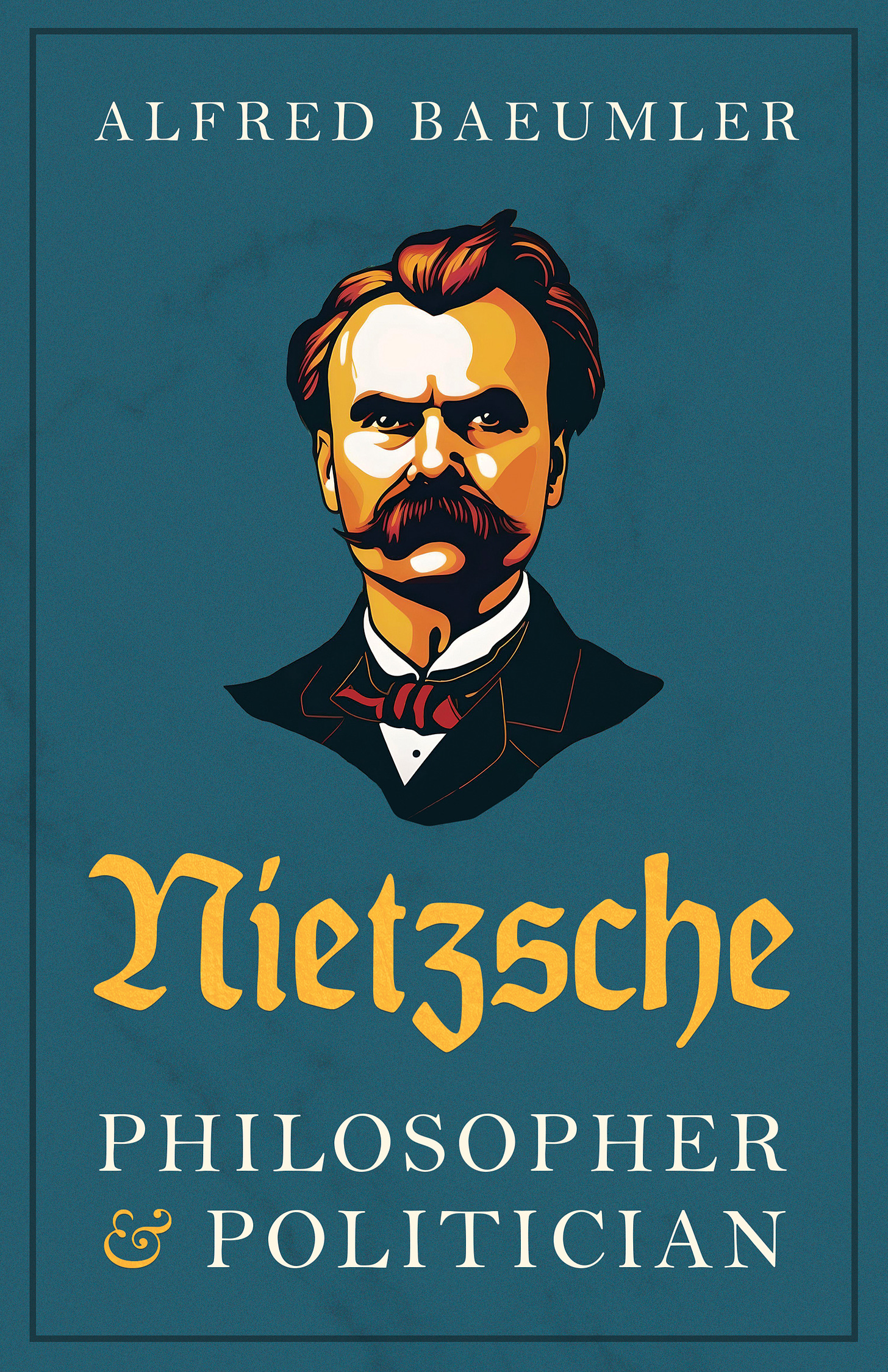This is the first appearance of Alfred Baeumler’s writing in English. One wonders why. Unlike so many in postwar Germany, Baeumler did not die in an internment camp; yet he was meant to experience a different kind of death. The professorship and authority Baeumler enjoyed in the prewar world was never returned to him after his time in postwar detention. He was meant to die in obscurity, along with all his ideas.
Principal among Baeumler’s ideas was his treatment of Friedrich Nietzsche, which has been censored in the world established after the war. Just as interning someone to death is not precisely the same as shooting someone, ignoring or avoiding propagation of certain ideas is not precisely the same as outright censorship. Yet, the respective result of each former and latter is the same: death in the former, censoring in the latter. One attack is physical, the other is intellectual; and each has the same effect: silencing. The lesson is clear: ideas deemed disruptive must be silenced.
Presented for the first time in English and republished for the first time in the postwar world is Alfred Baeumler’s Nietzsche: Philosopher and Politician (1931). Herein are ideas the postwar world meant to kill — because they are deemed disagreeable, dangerous. Dangerous to what? Dangerous to ideologies that intern and censor to death. This book, more than anything, is a mirror.





